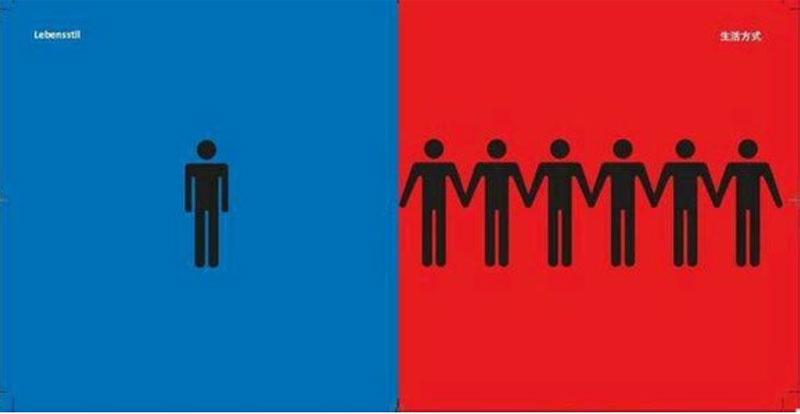1. 课外阅读材料
Chinese culture is guided by the value of Confucianism, which asks people to put others’ needs before those of their own. American culture, however, believes everybody is born equal and free, and thus should be treated and respected as an independent individual. It is hard to say which value is better, though both greatly influence people’s attitude towards others in society.
Under this influence, Chinese people tend to be very caring (sometimes a bit over), quite indirect and mostly modest. You never have to worry about not getting enough to eat at a Chinese friend’s home, as the host is constantly putting more food in your bowl and always persuading you to drink more alcohol. Chinese people seldom openly criticize others, because they believe this would make others “lose face”; and when they disagree, they prefer to say it in a very skillful way, so as not to hurt other people’s feelings. Also, to avoid annoying others, they never brag about themselves, often belittle what they’ve done, or owe their achievements to others. This is why you may hear a Chinese person saying “No, I’m not that good” when he is praised.
American people, on the other hand, are shaped by their culture to be independent, straightforward, and confident. They believe everyone is responsible for his own life, and unwanted care and attention do more harm than good. For this same reason, American people have a strong sense of privacy and would take care not to disturb others’ life, for example, by keeping their voice low in public places. Also, unlike the Chinese, people from the States tend to speak clearly and directly and come straight to the point and say exactly what they mean. So they often feel confused when talking to the mysterious Chinese. Another difference is that Americans are usually sure of themselves and are not afraid to admit they are good or right when they truly believe so. This is why when a Chinese turns red with a compliment, an American just proudly say “Thank you.”
2. 学生学前问卷
Unit 12 Lesson 3 Living Abroad
1. Do you think we should pay attention to the cultural differences when we learn English?
A. Yes. B. No.
2. Do you pay attention to culture when learning English?
A. Yes, a lot. B. Yes, a little. C. Not much. D. Not at all. E. Not sure.
3. Have you ever heard about culture shock?
A. Yes. B. No.
4. Please tell us your understanding of culture shock. (If this is the first time you hear about culture shock, think about what it is and tell us your understanding.)
5. Please describe one occasion when you feel most strongly about cultural difference or culture shock. (It could be your own experience, or what you read or see from books, movies, etc.)
6. Can you list some differences between Chinese and American people?
7. If you see different behaviors between Chinese and American people, can you analyze the cultural reasons behind the behaviors?
A. Yes. B. No. C. Not sure.
8. Please look at the following picture. The left one depicts lifestyle in western countries and the right one lifestyle in China. What do you think is the difference? And what is the cultural reason behind it?

3. 学生学后问卷
Unit 12 Lesson 3 Living Abroad
1. Please list some differences between Chinese and American people.
2. Please describe one occasion when you feel most strongly about cultural difference or culture shock. (It could be your own experience, or what you read or see from books, movies, etc.)Please write it on your homework exercise book.
3. Please look at the following picture. The left one depicts situation in American restaurants, the right one situation in Chinese restaurants. What do you think is the difference? And what is the cultural reason behind it?

